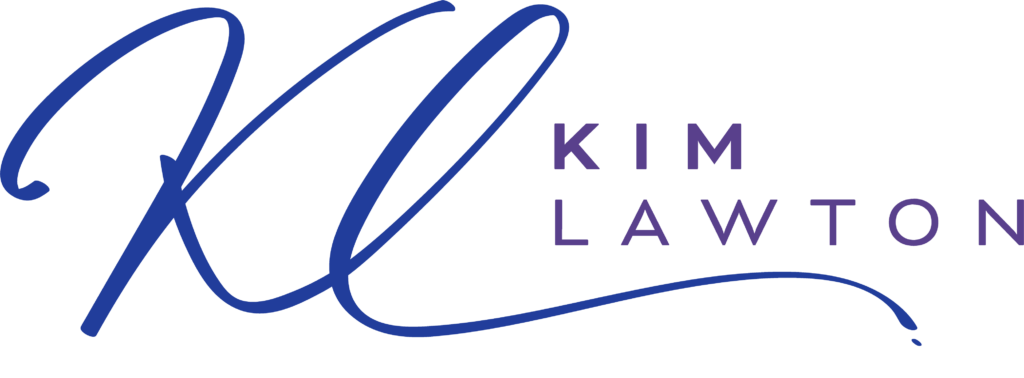How can building the right support system accelerate both your professional success and personal growth? What roles do emotional support, accountability, and community play in sustaining personal growth? In what ways does your current network nurture or hinder your personal growth?
Balancing the many demands of modern life often leaves us feeling stretched thin, but a strong support system can serve as both a life raft and an anchor. This blog explores why no one truly succeeds alone and how real, sustainable success happens at the intersection of professional advancement and personal growth. By recognizing that these two areas are not in competition but deeply interconnected, we can build a foundation that prevents burnout, nurtures resilience, and sustains long-term fulfillment.
Creating this kind of holistic support system requires more than just professional connections—it’s about surrounding yourself with the right people who meet emotional, practical, and accountability needs while also maintaining mutual value in relationships. By continuously evolving your network and integrating intentional practices into daily life, you create a dynamic support system that reflects your own personal growth. Ultimately, success isn’t a solo climb—it’s the journey we take together, supported by the people who keep us grounded, motivated, and thriving.
Think about how many hats you wear every single day of your life. You may be a parent, a sister, a friend, a spouse, a partner, a business owner, an employee, etc. Every day, there’s so much expected of us from all angles. It’s a lot to balance. Especially for those of us working on launching or already running a business, oftentimes it can feel like we’re drowning.
But a strong support system is your life raft.
Sometimes, though, it can be easy to believe that success in business or even in life comes from a solo climb. We’re told to grind, hustle, and put our heads down until we reach the top. We celebrate the self-made, the lone wolf, the person who seemingly built an empire with nothing but grit and a great idea. We see it on our social media feeds, in headlines, and in the motivational quotes plastered on corporate walls.
But the reality is, no one succeeds alone.
We go further when we go together. A support system is the net that catches you, the anchor that grounds you, and the engine that propels you forward. More than that, it nurtures both your professional aspirations and your personal well-being. It’s a dual-purpose life raft in a sea of constant demands, ensuring you stay afloat, no matter how turbulent the waters get.
I’ve felt this to be true time and time again throughout my own life, both personally and professionally. In entrepreneurship, driving personal growth needs to be a part of every facet of the business, from marketing operations to team management.
You can’t be a high-performing professional while your personal life is in shambles. You can’t build a sustainable career on the foundation of a crumbling sense of self. That’s where a strong community comes into play.
Table of Contents:
Understanding the Dual Nature of Growth
Core Components of a Holistic Support System
- Emotional Support
- Practical Support
- Accountability Partners
- Social and Community Circles
- Self-Support Mechanisms
Identifying the Right People for Your Support Network
Setting Boundaries and Expectations
Integrating Support Into Daily Life
Evaluating and Evolving Your Support System
Understanding the Dual Nature of Growth
To build a holistic support system, let’s first break down the two core components it needs to nurture: professional growth and personal growth.
Professional Growth is the realm we’re most familiar with. It includes the tangible milestones: skill development, career advancement, expanding your professional network, and achieving your business goals. It’s about advancing your career, becoming more qualified, and reaching new heights in your industry. This growth is often celebrated publicly and measured with metrics.
Personal Growth: This realm is often quieter, yet just as vital. It encompasses your emotional well-being, self-awareness, the quality of your relationships, and your physical health. It’s about becoming a better, more resilient human being. This growth often happens behind the scenes, shaping who you are at your core.
For far too long, our culture has viewed these two forms of growth as separate, or even in opposition to each other. We’ve been led to believe that professional success comes at the expense of personal happiness, or that prioritizing personal well-being means you’re not serious enough about your career.
This is a dangerous myth.
The reality is that neglecting one area will inevitably, and often dramatically, impact the other. An overemphasis on professional success without a solid personal foundation is a direct path to burnout. The high-achiever who can’t maintain healthy relationships, the brilliant strategist who is emotionally drained, the visionary leader whose physical health is in decline—these aren’t anomalies. They are the predictable outcomes of an unbalanced approach.
Conversely, personal fulfillment without professional purpose can lead to a different kind of stagnation. A person may be emotionally well-adjusted but feel a deep sense of unfulfilled potential in their career. Real, sustainable growth—the kind that nourishes us—happens at the intersection of both. A support system, therefore, must be designed to nurture both.
Core Components of a Holistic Support System
Building this kind of dual-purpose network that drives personal growth and business success requires a thoughtful approach. It’s not just about having a large group of acquaintances, followers, or LinkedIn connections. Instead, it’s about having the right people who fulfill specific, critical roles, and who—most importantly—are constantly there when you need them.
There are a few core components of any effective, holistic support system, including:
- Emotional Support
- Practical Support
- Accountability Partners
- Social and Community Circles
- Self-Support Mechanisms
1. Emotional Support
These are the people who listen without judgment, offer empathy during setbacks, and provide genuine encouragement. They are your safe space. They might be a best friend, a family member, or a therapist. Their value isn’t in their advice, but in their presence and ability to remind you that you’re seen, heard, and valued, especially when you feel like you’re failing.
2. Practical Support
This is where your professional network comes in. These are the mentors, coaches, or experienced peers who can offer guidance, resources, and actionable advice. They help you navigate a difficult career decision, introduce you to a key contact, or share a playbook that took them years to develop. They’re the people who have walked a similar path and can light the way to help you along.
3. Accountability Partners
These are the individuals who help you stay focused on your goals and commitments. They’re the ones you check in with, the ones who ask the tough questions, and the ones who celebrate your small victories. Their role is to provide a framework of discipline and motivation, helping you turn intentions into actions. The whole point is that you hold each other accountable so you can both grow into your best selves.
4. Social and Community Circles
These are the groups that align with your personal values and interests. They might be a running club, a book group, a volunteer organization, or a digital community centered around a shared hobby. Engaging with these circles helps you step outside your professional bubble, recharge your batteries, and remember who you are beyond your job title.
5. Self-Support Mechanisms
While a support system is about others, it begins with you. These are the daily habits and self-care practices that build your resilience. It could be a morning routine, a daily walk, journaling, or meditation. This is the foundation upon which all other forms of support are built. You can’t pour from an empty cup, and you can’t rely on others to fill it for you. For me, I love a daily walk, preferably in the morning before my work day really kicks off. It helps me feel more grounded, centered, and ready to take on each day.
Identifying the Right People for Your Support Network
So, how do you find the people who are “just right” for your network? Who are the people who will relentlessly support your professional and personal growth?
Remember, your network isn’t just your followers, LinkedIn connections, or the few random people you met at a conference and, for some reason, still have their business cards in your wallet.
Finding these people takes intention. It’s a very deliberate, ongoing process. Here are a few elements to keep in mind:
- Characteristics to Look For
- The Roles People Might Play
- Maintaining Mutual Value in Relationships
1. Characteristics to Look For
The most effective people in your network have certain traits. They are trustworthy, offering a safe space for vulnerability. They have a positive and growth-oriented mindset, lifting you up instead of bringing you down. They offer diverse perspectives, challenging your assumptions and broadening your horizons. These are the types of characteristics you want to ensure are reflected in your network.
2. The Roles People Might Play
Your network is a mosaic, not a monolith. A single person might be a great emotional sounding board, but a poor accountability partner. Look for mentors who have a few years on you, peers who are in the trenches with you, and friends who knew you before your career took off. Don’t forget the vital roles of family, therapists, and coaches, who can provide structured, professional support.
3. Maintaining Mutual Value in Relationships
The key to a sustainable support system is reciprocity. It cannot be a one-way street. Be a good listener for them. Offer your own expertise and connections when you can. Express genuine gratitude for their time and guidance. This isn’t a transactional relationship; it’s a mutual exchange of value, and clear communication is the core tenet that keeps it strong. You can’t expect to receive all the time without occasionally giving.
Setting Boundaries and Expectations
Any healthy support system is built on clear boundaries and expectations.
In terms of setting boundaries, it’s important to avoid dependency on either side. While support is crucial, you don’t want to become overly dependent on any single person or group. The goal is to be empowered and autonomous, not to have other people solve your problems for you. The role of support is to help you build the skills and confidence to navigate challenges yourself.
When setting expectations, being mindful and respectful of everyone’s time and energy is important. Everyone is busy. Respect the time and energy of those in your network by being clear about your needs and sticking to agreed-upon limits. A simple “Do you have five minutes to chat about a quick challenge I’m facing?” is often better than an hour-long, unscheduled phone call. Oftentimes, I advise people to think about how they’d feel if they were in the other person’s shoes. If an impromptu phone call on a weekday morning where a person dumps everything on their mind to you would completely disrupt your day and emotional state, definitely don’t do it to someone else.
Integrating Support Into Daily Life
Now, a support system isn’t something you build once and forget about. You constantly have to tend to it if you want it to grow and continue benefiting your professional and personal growth.
I make it a point to intentionally carve out time each week for check-ins with my network. This could be a coffee date, a text exchange, a phone call, or a scheduled dinner with friends. This simple act turns a passive connection into an active, life-giving one. I always leave feeling energized and inspired, so whenever I can find an opportunity to connect with my support system, it’s an absolute priority to fit in.
Also, your support system should be a mix of structured and casual interactions. Professional coaching or therapy provides a formal environment for deep work. Casual, informal conversations with peers or friends at a happy hour can provide unexpected insights and much-needed perspective. The best support systems are dynamic and adaptable, blending both types of relationships.
Evaluating and Evolving Your Support System
As you grow, your needs will change, and so too should your support system. These are my three biggest tips for making sure your support system continues to serve and benefit your personal growth long-term:
Recognizing When Change Is Needed: Be honest with yourself. Is a certain relationship no longer serving you? Is a person’s negativity draining your energy? Are your values no longer aligned? Identifying stagnation, toxic influences, or misaligned values isn’t a failure; it’s an act of self-care and honesty.
Reaching Out to New Circles: Don’t be afraid to expand your network. Join professional groups, attend industry events, or find a new community centered around a passion you haven’t tapped into yet. This is how you find new mentors, new accountability partners, and new friendships that align with the person you’re becoming.
Staying Adaptive as You Grow: The needs of a recent graduate are different from those of a mid-career professional or an entrepreneur building a business. The challenges of starting a family differ from navigating an empty nest. Your support system should be a living entity, evolving with you through every new stage of your personal and professional life.
Ultimately, your support network reflects your own personal growth. Asking for help is not a sign of weakness; it’s an acknowledgment of our shared humanity. It’s an understanding that true success isn’t about going it alone; it’s about having a crew that will help you stay the course, no matter how choppy the seas get.




